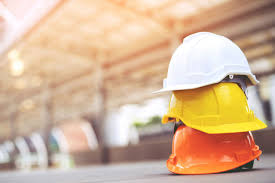


 349,500 Offered Certificates
349,500 Offered Certificates
 24/7 Online Training
24/7 Online Training
 Money Back Guarantee
Money Back Guarantee
 Fully Accredited Courses
Fully Accredited Courses

Created at: 13-11-2024 18:02
In the dynamic healthcare environment of Ireland, ensuring the safety of both patients and staff is paramount. One key aspect that professional healthcare workers must master is manual handling-first training. This specialized training is crucial in providing the knowledge and skills necessary to perform safe manual handling techniques, thus avoiding workplace injuries and promoting a culture of safety.
Manual handling-first training refers to specialized instruction on safe methods of moving and handling patients in various healthcare settings. This training equips healthcare professionals, including nurses, caregivers, and allied health workers, with essential skills to manage lifting, carrying, and supporting patients safely.
1. Preventing Injuries: Manual handling tasks pose a significant risk of injuries such as musculoskeletal disorders. Proper training helps mitigate these risks.
2. Enhancing Patient Safety: A well-trained staff can execute manual handling techniques that not only protect themselves but also ensure patient safety during transfers and mobility.
3. Compliance with Legislation: In Ireland, adhering to the Health and Safety Authority regulations is vital. Certification in manual handling-first training demonstrates compliance and commitment to workplace safety.
While many types of workers benefit from manual handling-first training, the primary audience includes:
An effective manual handling-first course covers a variety of essential topics, including:
Given the demanding schedules of healthcare professionals, Ireland-SafetyTraining offers both manual handling-first courses online and in-person sessions across major cities like Dublin, Cork, and Galway. These flexible options allow participants to choose a learning environment that best suits their needs.
Enrolling in a Certified Manual Handling-First Training course is straightforward. Visit Ireland Safety Training to find the course that fits your needs. You can also reach out directly at [email protected] for inquiries and more information.
Investing in manual handling-first certification is not just a regulatory requirement but also a commitment to safety and excellence in the healthcare profession. By equipping workers with the right training, healthcare providers can foster a safer environment for both staff and patients, significantly impacting overall care quality.
Don’t wait; ensure your team is trained and certified in manual handling-first practices today!